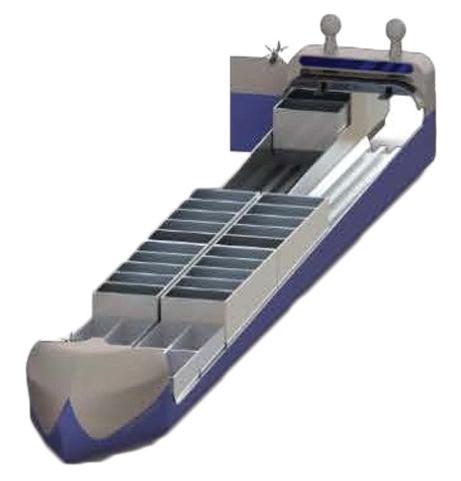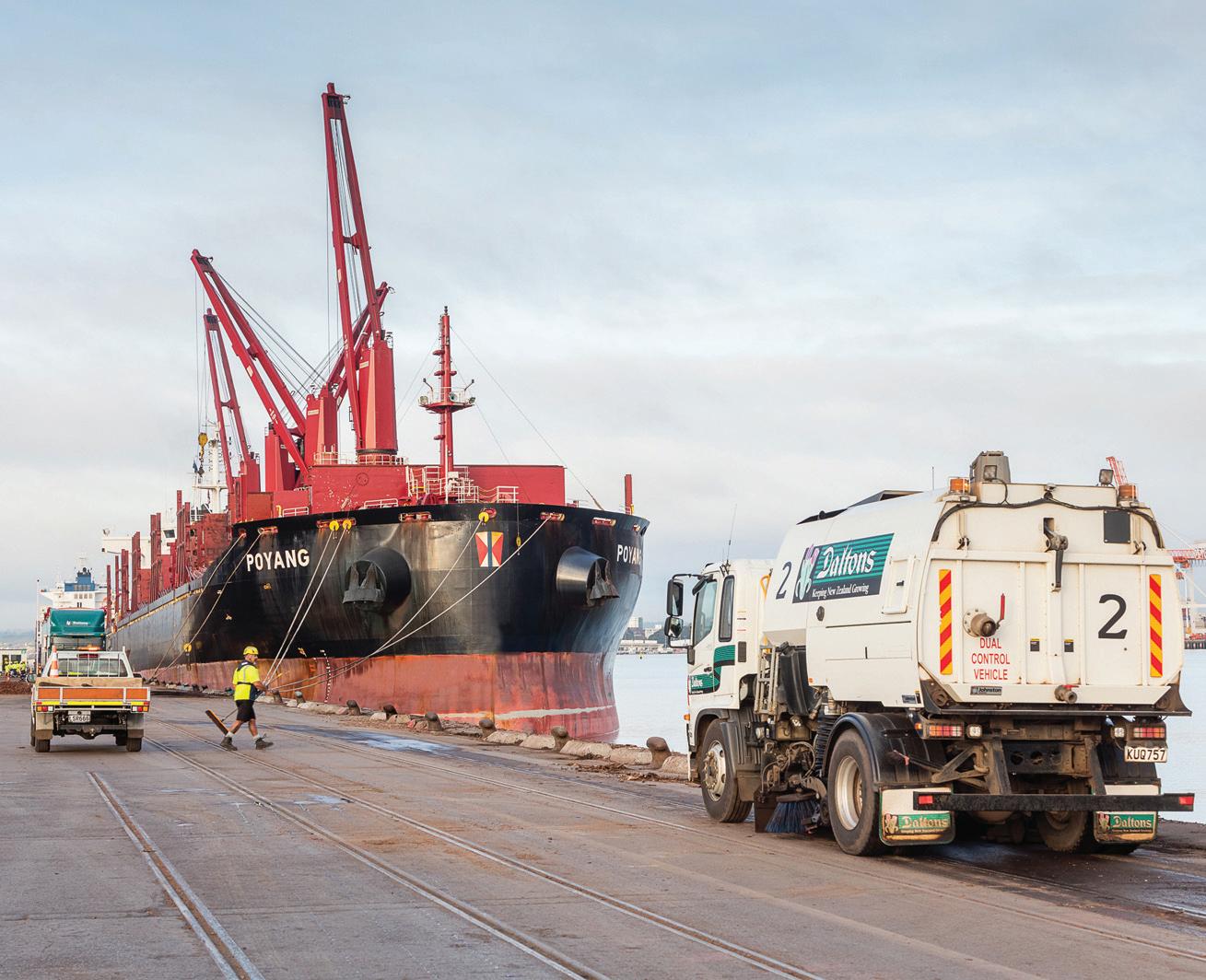SUPPLY CHAIN
BUILDING A STRONGER GREENER SUPPLY CHAIN In this article, Alex Pepper, group head of energy and environment, Peel Ports, examines how the pandemic will be used to build a more resilient supply chain in the future
Photo: Peel Ports
The pandemic has highlighted the importance of a strong supply chain to ensure the vital flow of food, medicines and supplies in and out of the UK. In a post-Covid world, operators and cargo owners will be seeking to understand how best to adjust their global business models to better safeguard themselves against shifts in the supply-demand balance. Logistics businesses will likely review their supply chains to determine how best to protect from future disruption - this could manifest in practises such as on-shoring or near-shoring of supply. A focus on supply chain reliance and risk management is likely to be a permanent legacy of the pandemic where supply chains have been critical. BUILDING RESILIENCE The intersection of the Covid-19 pandemic and Brexit will force logistics businesses to review their supply chains, to not only cater for evolving consumer behaviour but to make them as resilient as possible. It is hugely important to build supply chain strategies that are agile and resilient enough to withstand whatever comes their way, including adopting more sustainable practices to reduce CO2 emissions and costs. We have long been backing the use of regional ports, closer to the origin or destination of cargo, as a less congested alternative to southern terminal counterparts. Fewer road or rail miles mean less fuel is consumed on the land leg of the journey. This not only reduces cost, but also reduces carbon in the supply chain - emissions from shipping can be up to 80% lower than those from road on a tonne per kilometre basis. The shorter journey also improves driver productivity - a key factor given the increasing scarcity of long-distance truck drivers. Potential delays and hold-ups post-Brexit help bring the need to use the port closest to the origin or destination to light further. Using ports close to the origin and destination, and alternative modes of shipping, such as unaccompanied RORO or containers, logistics operators are able to minimise the impact of border
control to enable goods to reach their final destination. Beyond the proximity-to-market benefits, an evolved port strategy gives logistics providers new opportunities to make other gains too. Using regional gateways allows those with the need for new industrial developments (for example fulfilment centres, factories and processing plants) the opportunity to take advantage of fluctuating land values and labour availability/labour costs across the country, rather than be stuck in one high-cost region.
We are already seeing signs that businesses are looking ahead and building resilient and greener supply chain strategies, which have ports at their very heart Additionally, using ports closer to consumption, the logistics sector can help take trucks off the main long-haul motorway routes, improving energy efficiency and business responsibility in response to the continuing threat of climate change.
Photo: Peel Ports
8 PARC’s giant marine yard will provide clean, renewable energy through offshore wind assets
12 | WINTER 2020/21
8 The wheels are in motion with Peel Port’s new electric vehicle livery
ADDRESSING SUSTAINABILITY Although the full economic effect of the pandemic and Brexit is yet to be realised, there is a desire from government and businesses to 'build back greener' ensuring that recovery in every sense of the word is aligned to enhanced sustainability. The UK is legally bound by the target to reach net zero greenhouse gas emissions by 2050. A collective effort by businesses to reduce their carbon footprints will help us reach UK and international targets, which almost certainly involves looking at alternative transportation modes for goods or reducing the distance goods need to travel by road. Technological development also has a key part to play to enable businesses to be smarter and make transitions to alternative low-carbon fuels. Thanks to our agile and resilient business model, Peel Ports has adapted quickly and remained at the forefront of the UK's supply chain. We've opened up trade opportunities with the introduction of
For the latest news and analysis go to www.greenport.com/news101












